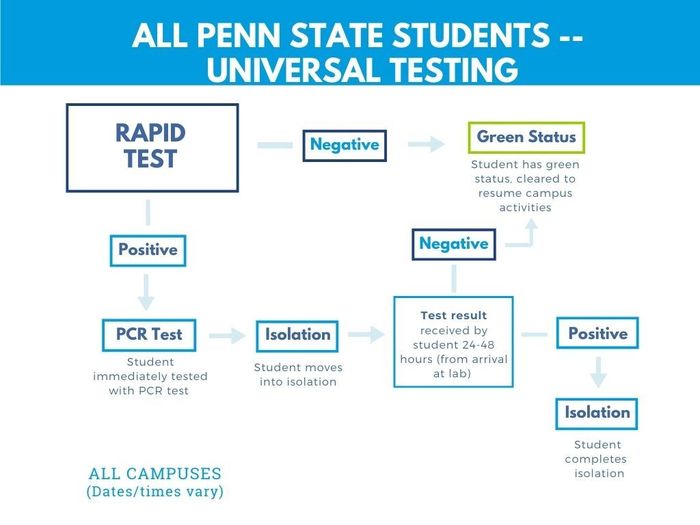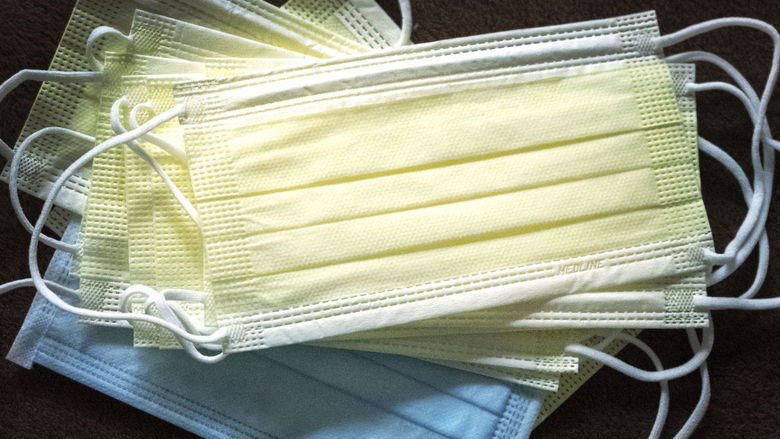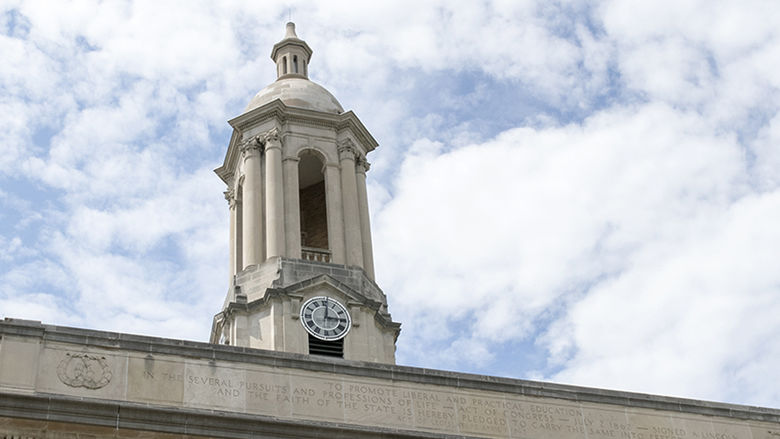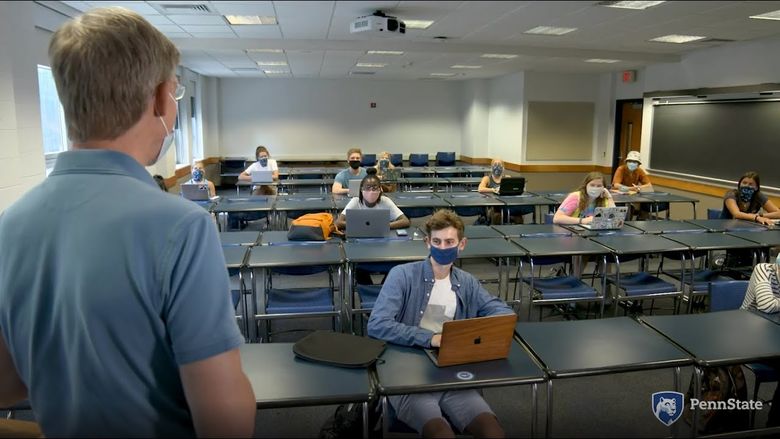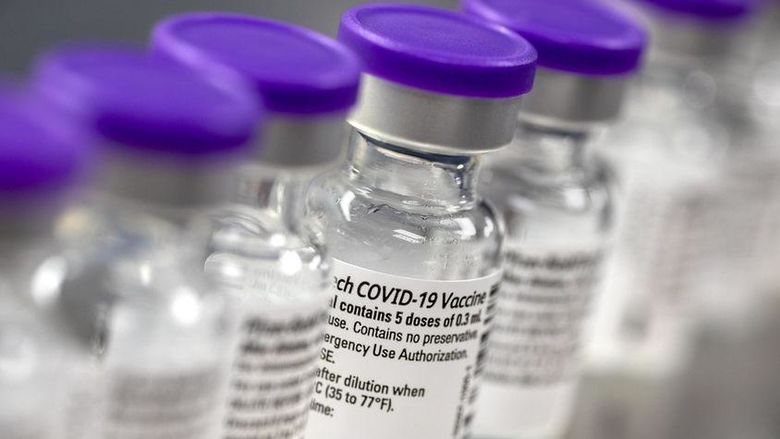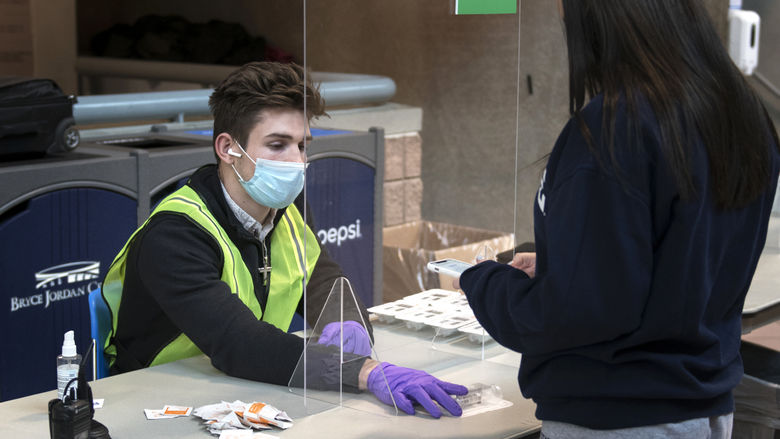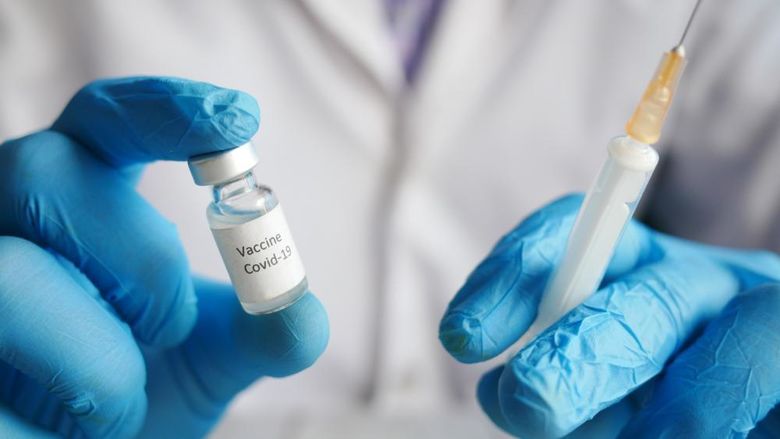
During the first two weeks of in-person learning (Feb. 15 to Feb. 26), Penn State will conduct universal COVID-19 testing of all students who are taking in-person classes or who are taking a fully remote or online course load while living in Centre County or within a 20-mile radius of a Penn State campus.
UNIVERSITY PARK, Pa. -- During the first two weeks of in-person learning (Feb. 15 to Feb. 26), Penn State will conduct universal COVID-19 testing of all students who are taking in-person classes or who are taking a fully remote or online course load while living in Centre County or within a 20-mile radius of a Penn State campus.
This second round of universal testing is in addition to the required initial testing of all students and does not fulfill the requirement that students must have a negative COVID-19 test result from a University provided test on file prior to, and within 72 hours of, their return to their campus community.
“The universal re-testing of all students is a key component of our spring testing strategy and will allow us to assess how the virus is spreading on our campuses and isolate cases quickly. It’s vital for students to participate in all of the required testing and understand that this retesting does not take the place of the required testing prior to the start of on-campus classes,” said Kelly Wolgast, director of the University’s COVID-19 Operations Control Center. “It takes each of our students to do their part to minimize the spread of the virus, and as a small thank you, students who sign-up early and complete the retesting will receive a terrific free T-shirt, while supplies last, that includes the words of the Penn State alma mater.”
What you need to know:
- KEEP A LOOK OUT: Students received an email from [email protected] on Feb. 9 that includes instructions on how to schedule their testing appointment. Students are urged to schedule their appointment as soon as possible in order to find an appointment time that is suitable to their schedule. Due to the large volume of testing, appointments are required and walk-ins will not be accepted.
- WHEN AND WHERE: Testing sites will be set up on every Penn State campus during the re-testing period, though dates and hours of operation will vary from campus to campus depending on the size of their student population. Testing locations and hours for each campus are listed below.
- WHAT: At the testing site, students will first take a rapid antigen test and wait on-site for approximately 15 minutes for their results. Individuals should plan to spend 30 minutes at the testing site to complete all requirements. Students who miss their appointment time will not be permitted to participate in any Penn State classes or activities until they have rescheduled their testing appointment.
A positive result will prompt the University’s contact tracing process. Students who receive a positive result will immediately take a secondary polymerase chain reaction (PCR) test to confirm the positive result and move into isolation while awaiting the PCR test results. Students who receive a negative PCR test result may leave isolation. A positive PCR test result will require students to complete a 10-day isolation period.
- DON’T FORGET: Students are reminded to bring their Penn State id+ Card, hydrate well 30 minutes before to taking the test and to not eat, drink, smoke or chew gum in the 30 minutes prior to taking the test. Mask wearing and physical distancing is required at all times.
Testing Dates, Times and Locations by Campus (dates and times may be adjusted based on campus needs):
- Abington: 9 a.m. to 6 p.m. from Feb. 25 and 26 in the Athletic Building
- Altoona: 9 a.m. to 4 p.m. from Feb. 17 to Feb. 19 in Adler Athletic Complex
- Beaver: 2 to 5 p.m. on Feb. 15 and 9 a.m. to noon on Feb. 16 in the gymnasium/wellness center
- Behrend: 8 a.m. to 4 p.m. from Feb. 17 to Feb. 19 in Erie Hall
- Berks: 9 a.m. to 5 p.m. on Feb. 19 and 26 in the Beaver Community Center
- Brandywine: 10 a.m. to 4 p.m. on Feb. 22 and 23 in the Commons/Athletic Center
- Dickinson Law: 9 a.m. to noon on Feb. 22 in Katz Hall
- DuBois: 9 a.m. to 1 p.m. on Feb. 22 and 23 in the Hiller Building
- Fayette: 9 a.m. to 1 p.m. on Feb. 22 and 23 in the Community Center
- Great Valley: 3 to 6 p.m. on Feb. 23 in the Main Building
- Greater Allegheny: 2 to 5 p.m. on Feb. 22 and 9 a.m. to noon on Feb. 23 in the Wunderley Gymnasium
- Harrisburg: 8 a.m. to 4 p.m. from Feb. 15 to Feb. 17 in the Capital Union Building
- Hazleton: 8 a.m. to noon on Feb. 24 and 1 to 5 p.m. on Feb. 25 in the Physical Education Building
- Hershey: noon to 6 p.m. on Feb. 16 and 17 at the University Conference Center
- Lehigh Valley: 8 a.m. to noon on Feb. 22 and 2 to 6 p.m. on Feb. 23 in the Lehigh Valley Building
- Mont Alto: 9 a.m. to 1 p.m. on Feb. 24 and 25 in the Multipurpose Activities Building
- New Kensington: 9 a.m. to noon on Feb. 22 and 2 to 5 p.m. on Feb. 23 in the Athletic Center Gymnasium
- Schuylkill: 2 to 5 p.m. on Feb. 22 and 9 a.m. to noon on Feb. 23 in the Health and Wellness Building
- Scranton: 9 a.m. to 2 p.m. on Feb. 24 and 25 in Sherbine Lounge
- Shenango: 9 a.m. to noon on Feb. 15 and 2 to 5 p.m. on Feb. 16 in Sharon Hall
- University Park: 9 a.m. to 7 p.m. from Feb. 15 to Feb. 26 in the White Building
- Wilkes-Barre: 2 to 5 p.m. on Feb. 24 and 8 to 11 a.m. on Feb. 25 in the Nesbitt Academic Commons Building
- York: noon to 4 p.m. on Feb. 22 and 9 a.m. to 1 p.m. on Feb. 23 in the Ruhl Student Community Center
Universal retesting is just one piece of the University’s spring 2021 COVID-19 testing strategy, which also includes ongoing surveillance, walk-up and mail-in testing throughout the semester. Students who are experiencing symptoms of COVID-19 should continue to seek out symptomatic testing through a University health care provider. More information on testing is available on virusinfo.psu.edu.
